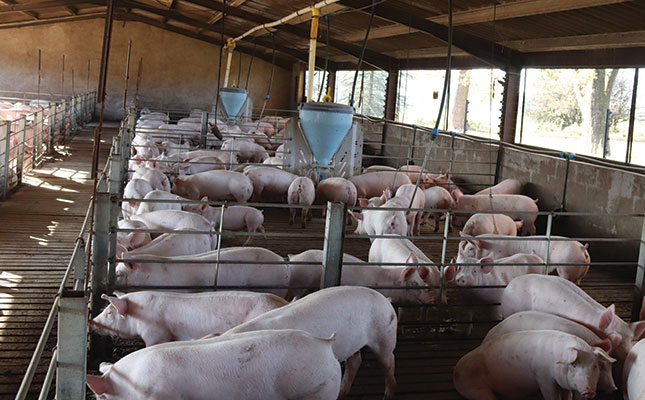
Photo: FW Archive
She told Farmer’s Weekly that AFS had in the past been transmitted to pigs through infected ticks hosted by warthogs, but nowadays the disease was spread through contact between infected pigs, and by fomites.
“We are not sure how the [current outbreak of the] disease was transmitted, but given the fact that the disease occurred in the commercial concern despite strict biosecurity protocols, indications are that it was spread by a fomite of some sort. Fomites include objects or materials that are likely to carry infection, such as clothes, saliva or even animal feed.
“African swine fever is a serious disease and could lead to the loss of an entire herd,” Chiaperro added.
According to a statement by the Department of Agriculture, Land Reform and Rural Development, the disease had originated on a farm in Gauteng, which had been placed under quarantine.
The provincial veterinary services had meanwhile instituted forward and back-tracing investigations to identify any properties that could have had direct or indirect contact with the affected farm.
Farms in Gauteng, North West and the Free State had so far been placed under precautionary quarantine as a result of the outbreak.
The ASF negative status of these farms would be confirmed before the precautionary quarantine could be lifted, while the source of the infection on the farm with positive cases had not yet been identified.
Indications were that the infection had already been present on the farm since mid-December 2022.
According to the Food and Agriculture Organization of the United Nations, AFS was a viral disease that affected domestic and wild pigs.
It had been identified in more than 50 countries in Africa, Europe and Asia since 2007, and had recently reappeared in the Americas.
The disease did not present a risk to human health, but posed the most serious threat to pig farmers around the world at present because of its rapid spread, high mortality rate, and the absence of a vaccine against it, according to the FAO.











